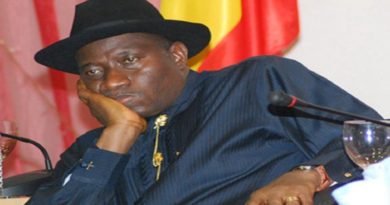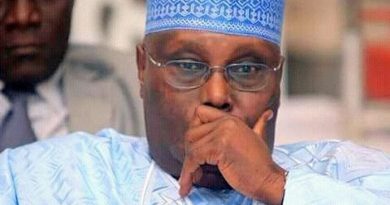Fitch projects 2.6% GDP growth for Nigeria in 2017
FITCH Ratings has projected a 2.6 percent growth in Nigeria’s Gross Domestic Product (GDP) for 2017. This was contained in a statement issued on Tuesday by the global rating agency.
Though Fitch reduced its forecast for the country’s GDP growth for 2016 to 1.0 percent from 1.5 percent, citing weak performance in the first half of the year, continuing policy challenges, including implementation of the new foreign-exchange regime and delays in the disbursement of the 2016 budget, it however stated that economy will bounce back in 2017 with a GDP growth of 2.6 percent.
Limited bounce back Fitch stated, “We expect real GDP to contract by 1.0 percent in 2016, compared with our earlier forecast of a 1.5 percent expansion. We expect a limited bounce back and forecast a recovery to 2.6 percent next year, with downside risks if dollar liquidity remains tight. The medium-term growth outlook remains significantly lower than the 5.6 percent growth seen in 2010-14.
“Our revisions incorporate a weaker-than-anticipated first half performance. GDP shrank 2.1 percent YOY in 2Q16, the second consecutive fall. Much of the contraction was due to falling oil production, which shrank from an average of 2.1 million barrels per day (mbpd) in 1Q to 1.7mbpd in 2Q. An improving situation in the Niger Delta region will prevent further production loss, but levels are not likely to reach 1Q levels this year.
“The non-oil sector shrank, by 0.4 percent, for the second consecutive quarter, because of spill over from the oil sector, energy shortages, and lack of foreign exchange for domestic industry. According to the Central Bank of Nigeria, August marked the eighth straight month of declining production levels, new orders and raw materials inventories.
“The more flexible FX framework implemented in June has allowed the naira to depreciate, but the amount of dollars traded in the official market and available to the banking system and domestic industry remains limited. The declining parallel market rate continues to keep the spread above the official rate high. Fitch’s view is that dollar liquidity will not significantly improve until market participants become more comfortable with the sustainability of the exchange-rate level, which is likely to require further narrowing of the spread between the official and parallel market rates.
“While FX depreciation will push up inflation further, increased dollar liquidity would partially offset this as FX rationing has created shortages in the supply of imported goods. Headline inflation rose to 17.6 percent in August, and we have increased our average CPI forecast for 2016 to 14 percent from 11 percent. High inflation limits the scope for monetary easing (the CBN held its key rate at 14 percent in September, following a 200 bp hike in July).
“Nigeria’s 2016 budget envisaged an increase in capital expenditure to stimulate the economy. However, the bulk of these disbursements have been delayed by the late adoption of the budget and the slow pace of securing external financing. Economic downturn Fitch expects that the government will secure financing from multilateral development banks and bilateral sources and will execute the bulk of its planned expenditure. However, timing remains unsure and some disbursements are unlikely until 2017.
“A sharp economic downturn is negative for Nigeria’s sovereign credit profile, which has been supported in recent years by strong, stable real GDP growth. It will slow the non-oil revenue growth that the 2016 budget anticipates will fund a portion of growth-enhancing infrastructure expenditure. “Widening deficits are mitigated by low government debt (13 percent of GDP at end-2015, well below the ‘B’ category median). We think the debt burden is sustainable, but it is increasing, while government revenues have fallen as a proportion of GDP. General government debt and interest as a percentage of revenues, at 270 percent and 23 percent respectively, are considerably higher than the ‘B’ category median.
“We identified fiscal sustainability as a rating sensitivity when we downgraded Nigeria’s sovereign rating to ‘B+’/Stable from ‘BB-’/Negative in June. The downgrade reflected increased fiscal and external vulnerability due to the sharp fall in oil revenue and the authorities’ indecisive policy response.”





Athekame Kenneth liked this on Facebook.
Fitch projects 2.6% GDP growth for Nigeria in 2017 https://t.co/vQGOFzWR22